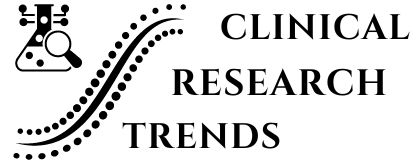Innovations in Patient Data Management
Clinical research serves as the cornerstone of medical advancement, playing a pivotal role in discovering new treatments, validating existing therapies, and improving patient care. Through meticulously designed and executed studies, clinical research provides the scientific evidence needed to guide medical practice, inform policy decisions, and ultimately enhance public health. The methodologies used in clinical research determine the reliability and validity of the findings, making the choice of approach critically important.
In the rapidly evolving landscape of healthcare, staying updated with the latest methodologies in clinical research is crucial. New challenges such as emerging diseases, complex patient needs, and technological advancements necessitate continuous innovation in research techniques. By embracing the latest methodologies, researchers can enhance the efficiency, accuracy, and ethical standards of clinical trials.
This not only accelerates the development of new therapies but also ensures that the findings are robust and applicable to diverse patient populations. As the healthcare industry moves towards more personalized and patient-centric care, innovative research methodologies will be key to meeting these evolving demands and improving health outcomes globally.
Traditional Clinical Research Methodologies
Overview of Standard Approaches in Clinical Research
Traditional clinical research methodologies have long been the backbone of medical research, providing a structured approach to investigating the safety and efficacy of new treatments. The most common approach, the randomized controlled trial (RCT), is often regarded as the gold standard. In an RCT, participants are randomly assigned to either the treatment group or the control group, which receives a placebo or standard treatment. This randomization helps to eliminate bias, ensuring that the results are as reliable and valid as possible.
Other standard methodologies include cohort studies, which follow a group of individuals over time to observe outcomes related to specific exposures, and case-control studies, which compare individuals with a particular condition to those without, looking retrospectively to identify potential causes or risk factors. These approaches have been essential in advancing medical knowledge and establishing evidence-based practices.
Limitations of Traditional Methodologies
While traditional methodologies have significantly contributed to medical research, they are not without limitations. One major drawback is the high cost and time investment required to conduct these studies. RCTs, in particular, can be expensive and lengthy, often taking several years to complete. This can delay the availability of potentially life-saving treatments to patients who need them urgently.
Another limitation is the often stringent eligibility criteria that can exclude a significant portion of the patient population. This can result in study populations that do not accurately represent the diversity seen in the real world, potentially limiting the generalizability of the findings. Additionally, traditional methodologies can struggle to keep pace with the rapid advancements in medical technology and the increasingly complex nature of modern healthcare.
Furthermore, the rigid design of traditional trials can be inflexible, making it difficult to adapt to new information or changing circumstances. This inflexibility can lead to inefficiencies and missed opportunities to optimize the study design based on interim results.
As the healthcare landscape continues to evolve, there is a growing recognition of the need for more innovative and adaptable research methodologies. These new approaches promise to address the limitations of traditional methods, improving the efficiency, accuracy, and applicability of clinical research, and ultimately enhancing patient outcomes.
Notable Labs stands out in the realm of patient data management by pioneering advanced strategies that fuse sophisticated analytics with seamless real-time data integration. This approach empowers healthcare providers with actionable insights that enhance clinical decision-making and patient care outcomes. By harnessing state-of-the-art technologies, Notable Labs ensures that medical professionals can access and analyze patient data efficiently, leading to more personalized treatment plans and improved therapeutic outcomes. Their commitment to innovation in data management is not just about efficiency but also about driving significant advancements in how healthcare is delivered and experienced.
New Approaches in Clinical Research
Adaptive Clinical Trials
Adaptive clinical trials are a flexible approach to clinical research that allows for modifications to the trial procedures based on interim results. Unlike traditional fixed-design trials, which are rigid and unchangeable once commenced, adaptive trials enable researchers to make predefined adjustments such as dose changes, sample size re-estimation, or patient stratification. These adjustments are guided by data collected during the trial, enhancing the trial's efficiency and likelihood of success.
Advantages Over Traditional Fixed-Design Trials
Adaptive trials offer several significant advantages over traditional fixed-design trials. They are typically more efficient, often requiring fewer participants and resources to reach conclusive results. The flexibility to make data-driven adjustments can lead to quicker identification of effective treatments or discontinuation of ineffective ones, thereby saving time and reducing costs. Additionally, adaptive trials can improve patient safety by allowing for modifications in response to emerging data about adverse effects.
Examples of Adaptive Trials in Recent Studies
One notable example of an adaptive trial is the I-SPY 2 trial, which is focused on breast cancer treatments. This trial uses an adaptive design to evaluate multiple therapies simultaneously, rapidly advancing the most promising ones based on interim results. Another example is the RECOVERY trial, which investigated various treatments for COVID-19, including dexamethasone, which was quickly identified as a beneficial treatment for severe cases due to the trial's adaptive nature.
Decentralized Clinical Trials (DCTs)
Decentralized clinical trials (DCTs) are a novel approach that leverages digital health technologies to conduct trials outside of traditional clinical settings. Participants can be enrolled, monitored, and assessed remotely, often from their homes, using telemedicine, mobile health apps, and wearable devices. This contrasts sharply with traditional trials, which typically require participants to visit centralized clinical sites for assessments and data collection.
Benefits Such as Increased Patient Access and Convenience
DCTs offer numerous benefits, foremost among them increased patient access and convenience. By removing geographic barriers, DCTs can enroll a more diverse and representative patient population. The convenience of participating from home can enhance recruitment and retention rates, as participants are spared the need for frequent travel to clinical sites. This approach also allows for more continuous and comprehensive data collection through remote monitoring devices.
Challenges and Considerations in Implementing DCTs
Despite their advantages, DCTs come with challenges and considerations. Ensuring data security and patient privacy is paramount, as remote data collection increases the risk of breaches. Additionally, there may be variability in the quality of data collected from different devices and environments. Regulatory compliance and establishing reliable communication channels between patients and researchers are also critical considerations.
Real-World Evidence (RWE) Integration
Real-world evidence (RWE) refers to clinical evidence obtained from real-world data (RWD) sources such as electronic health records, claims and billing data, patient registries, and wearable devices. Unlike data from traditional clinical trials, RWE reflects the diverse patient experiences in routine clinical practice.
Role of RWE in Enhancing Clinical Trial Data
RWE plays a crucial role in enhancing clinical trial data by providing insights into how treatments perform in real-world settings. It can complement data from randomized controlled trials, offering a more comprehensive understanding of a treatment's effectiveness, safety, and potential side effects across broader patient populations. RWE can also aid in post-market surveillance and support regulatory decision-making.
Case Studies Demonstrating Successful RWE Integration
One example of successful RWE integration is the FDA’s Sentinel Initiative, which uses RWD to monitor the safety of marketed medical products. Another example is the use of RWE in the approval of palbociclib for breast cancer treatment, where real-world data supported its clinical trial findings and helped expedite its approval process.
Artificial Intelligence and Machine Learning
Artificial intelligence (AI) and machine learning (ML) are transforming clinical trial design and analysis by automating complex data analysis, predicting patient outcomes, and optimizing trial protocols. AI can identify patterns and insights from vast datasets that are beyond human capability, enhancing the precision and efficiency of clinical research.
Examples of AI-Driven Innovations Improving Trial Efficiency
AI-driven innovations have significantly improved trial efficiency. For instance, ML algorithms can predict patient enrollment and retention rates, helping to design more realistic and achievable trial timelines. AI can also be used to identify suitable trial participants by analyzing electronic health records, thereby speeding up the recruitment process. Additionally, AI-powered analytics can monitor ongoing trials for early signs of safety issues or efficacy trends.
Ethical Considerations and Potential Limitations
While AI and ML offer promising advancements, they also pose ethical considerations and limitations. The use of AI in clinical research raises concerns about data privacy, algorithmic bias, and the transparency of AI decision-making processes. Ensuring that AI systems are trained on diverse and representative datasets is crucial to avoid biased outcomes. Moreover, the interpretability of AI models remains a challenge, as complex algorithms can sometimes act as "black boxes" with decisions that are difficult to explain.
Wearable Technology and Remote Monitoring
Use of Wearable Devices to Collect Real-Time Health Data:
Wearable technology, such as smartwatches and fitness trackers, is increasingly used in clinical research to collect real-time health data. These devices can monitor a wide range of physiological parameters, including heart rate, physical activity, sleep patterns, and even biochemical markers through non-invasive sensors.
Impact on Patient Adherence and Data Accuracy:
The use of wearable devices can significantly improve patient adherence to clinical trials, as they allow for continuous, passive data collection without the need for frequent clinic visits. This can lead to more accurate and comprehensive datasets, capturing real-world patient behavior and outcomes. Additionally, wearables can provide early indicators of adverse events or treatment efficacy, enabling timely interventions.
Examples of Trials Utilizing Wearable Technology:
Several trials have successfully integrated wearable technology. For example, the Apple Heart Study used the Apple Watch to identify irregular heart rhythms and potential atrial fibrillation in a large population. Another study, the mSToPS trial, used wearable ECG patches to detect undiagnosed atrial fibrillation, demonstrating the potential of wearables in large-scale, remote health monitoring.
Patient-Centric Approaches
Importance of Involving Patients in the Trial Design Process:
Patient-centric approaches emphasize the involvement of patients in the design and conduct of clinical trials. Engaging patients early in the trial design process ensures that their needs, preferences, and experiences are considered, leading to more relevant and acceptable research protocols.
Methods to Enhance Patient Engagement and Retention:
Several methods can enhance patient engagement and retention in clinical trials. These include clear and transparent communication, simplifying the consent process, offering flexible visit schedules, and providing ongoing support and feedback to participants. Utilizing digital tools and platforms to facilitate patient interaction and data collection can also improve engagement.
Case Studies Showing Successful Patient-Centric Trials:
The Parkinson’s Foundation’s Parkinson’s Outcomes Project is an example of a successful patient-centric trial, where patients were actively involved in shaping the research agenda and outcomes measures. Another example is the All of Us Research Program, which aims to gather data from a diverse group of participants, with an emphasis on patient involvement and feedback throughout the research process.
Regulatory Considerations
Overview of Recent Regulatory Changes Impacting Clinical Research Methodologies
Recent years have seen significant regulatory changes aimed at accommodating the evolving landscape of clinical research methodologies. Regulatory bodies such as the U.S. Food and Drug Administration (FDA), the European Medicines Agency (EMA), and others have updated guidelines to support innovative trial designs, digital health technologies, and the use of real-world evidence (RWE). For instance, the FDA’s guidance on adaptive trial designs and the use of decentralized clinical trials (DCTs) reflects a growing recognition of the need for flexibility and patient-centric approaches in clinical research.
The COVID-19 pandemic accelerated many of these changes, as the urgent need for rapid and efficient clinical trials led to the widespread adoption of decentralized methods and real-world data integration. Regulatory agencies provided expedited pathways and emergency use authorizations to facilitate the development and approval of treatments and vaccines, setting a precedent for future regulatory frameworks.
How Regulatory Bodies Are Adapting to New Methodologies
Regulatory bodies are increasingly adapting to new methodologies by developing and updating guidelines, offering support and resources to researchers, and fostering collaboration with stakeholders. The FDA, for example, has issued a series of guidance documents on adaptive designs, decentralized trials, and the use of digital health technologies. These guidelines provide a roadmap for researchers to design and conduct innovative trials while ensuring compliance with regulatory standards.
In addition, regulatory agencies are investing in new technologies and infrastructures to support these methodologies. The EMA’s Adaptive Pathways pilot project and the FDA’s Sentinel Initiative are examples of efforts to integrate real-world evidence into regulatory decision-making processes. These initiatives aim to streamline the approval process for new treatments and enhance post-market surveillance.
Importance of Compliance and Ethical Considerations
As clinical research methodologies evolve, maintaining compliance with regulatory requirements and upholding ethical standards remains paramount. Ensuring patient safety, data integrity, and transparency are critical components of ethical research practices. Researchers must adhere to guidelines for informed consent, data privacy, and the ethical treatment of participants, particularly in decentralized and digitally enabled trials.
Compliance with regulatory standards not only protects patients but also ensures the validity and credibility of research findings. Regulatory oversight helps to mitigate risks, prevent misconduct, and maintain public trust in clinical research. Ethical considerations, such as minimizing harm, maximizing benefits, and ensuring equitable access to trials, are fundamental to the responsible conduct of research.
By staying informed about regulatory changes and adhering to ethical principles, researchers can navigate the complexities of modern clinical research methodologies, ultimately contributing to the advancement of medical science and the improvement of patient outcomes.
Future Directions
Predictions for the Next Advancements in Clinical Research Methodologies
The future of clinical research is poised for exciting advancements, driven by technological innovations and a deeper understanding of patient needs. Key predictions include:
- Increased Use of Artificial Intelligence and Machine Learning: AI and ML will play a more significant role in every stage of clinical trials, from patient recruitment to data analysis. Predictive analytics will enhance the precision of trial designs, while AI-driven monitoring will improve safety and efficacy assessments.
- Enhanced Integration of Real-World Data: The use of real-world data will become more prevalent, providing richer insights into patient outcomes and treatment effectiveness. Advanced analytics will enable the seamless integration of data from diverse sources, including electronic health records, patient registries, and wearable devices.
- Expansion of Decentralized Trials: The shift towards decentralized trials will continue, driven by the need for greater patient accessibility and convenience. Telemedicine, remote monitoring, and digital health platforms will become standard components of clinical research, facilitating broader and more inclusive participation.
- Personalized Medicine Approaches: Advances in genomics and biomarker discovery will enable more personalized clinical trials, where treatments are tailored to individual genetic profiles. This will enhance the precision and effectiveness of new therapies.
- Blockchain for Data Integrity and Security: Blockchain technology will be increasingly utilized to ensure the integrity, transparency, and security of clinical trial data. This will address concerns related to data manipulation and enhance trust in research findings.
Potential Challenges and How the Industry Might Address Them
While these advancements offer significant potential, they also present several challenges:
- Data Privacy and Security: The increased use of digital and remote technologies raises concerns about data privacy and security. The industry must invest in robust cybersecurity measures and adhere to strict data protection regulations to safeguard patient information.
- Regulatory Hurdles: Navigating the regulatory landscape for new methodologies can be complex. Collaboration between regulatory bodies and researchers will be essential to develop clear guidelines and streamline approval processes for innovative trial designs.
- Ethical Considerations: Ensuring ethical standards in new methodologies, particularly in AI-driven and decentralized trials, will be crucial. Ongoing dialogue with ethical committees and patient advocacy groups will help address these concerns.
- Technological Integration: Seamless integration of various technologies and data sources can be challenging. Developing interoperable systems and standardized protocols will be necessary to ensure the efficient and accurate collection and analysis of data.
- Patient Engagement: Maintaining patient engagement and trust in new methodologies requires transparent communication and continuous support. Researchers must prioritize patient-centric approaches and involve patients in the trial design process.
The Role of Ongoing Education and Training for Researchers
To keep pace with these advancements, ongoing education and training for researchers will be critical. This includes:
- Continued Professional Development: Researchers should engage in continuous learning to stay updated on the latest methodologies, technologies, and regulatory changes. Professional development programs and certifications can support this ongoing education.
- Interdisciplinary Collaboration: Encouraging collaboration between researchers, technologists, and healthcare providers will foster a holistic understanding of new methodologies and their practical applications.
- Workshops and Conferences: Attending workshops, conferences, and seminars on emerging trends and innovations in clinical research will provide valuable insights and networking opportunities.
- Ethics and Compliance Training: Regular training on ethical standards and regulatory compliance will ensure that researchers conduct trials responsibly and adhere to the highest standards of patient care and data integrity.
By embracing these educational opportunities and addressing the potential challenges, the clinical research industry can continue to innovate and improve, ultimately leading to better healthcare outcomes and more effective treatments for patients worldwide.
Recap of the importance of adopting new methodologies in clinical research
Adopting new methodologies in clinical research is crucial for several reasons. First, it enhances the efficiency and accuracy of clinical trials, leading to faster and more reliable results. Innovative approaches like adaptive and decentralized trials can reduce costs and time while increasing patient access and convenience. The integration of real-world evidence provides a more comprehensive understanding of treatment effectiveness and safety, reflecting diverse patient populations.
Technological advancements such as artificial intelligence, machine learning, and wearable devices offer unprecedented opportunities to collect and analyze data in real-time, improving the precision of clinical trials and patient outcomes. Personalized medicine approaches, driven by genomics and biomarkers, allow for tailored treatments that address individual patient needs, enhancing the efficacy of therapies.
Moreover, these new methodologies ensure that clinical research remains patient-centered, ethical, and compliant with regulatory standards. They facilitate broader participation, enhance patient engagement, and uphold data integrity and security, ultimately building trust in clinical research.
As the landscape of clinical research continues to evolve, it is imperative for researchers and stakeholders to stay informed and adaptive. Here are key actions to consider:
- Embrace Continuous Learning: Engage in ongoing professional development to keep abreast of the latest trends, technologies, and regulatory updates in clinical research. Participate in workshops, conferences, and training programs to enhance your knowledge and skills.
- Foster Collaboration: Collaborate across disciplines, including technologists, healthcare providers, and regulatory bodies, to integrate diverse perspectives and expertise. This interdisciplinary approach can drive innovation and improve research outcomes.
- Prioritize Patient-Centric Approaches: Involve patients in the trial design process and prioritize their needs and preferences. Enhance patient engagement through transparent communication, flexible participation options, and ongoing support.
- Invest in Technology: Leverage advanced technologies such as AI, machine learning, and wearable devices to enhance data collection and analysis. Ensure that these technologies are integrated seamlessly and used ethically.
- Ensure Compliance and Ethics: Adhere to regulatory guidelines and ethical standards to protect patient safety, data privacy, and research integrity. Stay updated on regulatory changes and work closely with ethical committees and patient advocacy groups.
- Promote Data Security: Implement robust cybersecurity measures to safeguard patient data. Ensure that all data collection and analysis processes are secure and comply with relevant data protection regulations.
By taking these actions, researchers and stakeholders can contribute to the advancement of clinical research, ensuring that it remains innovative, efficient, and patient-centered. Embracing new methodologies and staying informed and adaptive will not only improve the quality and applicability of clinical trials but also accelerate the development of new therapies, ultimately benefiting patients and advancing global healthcare.










